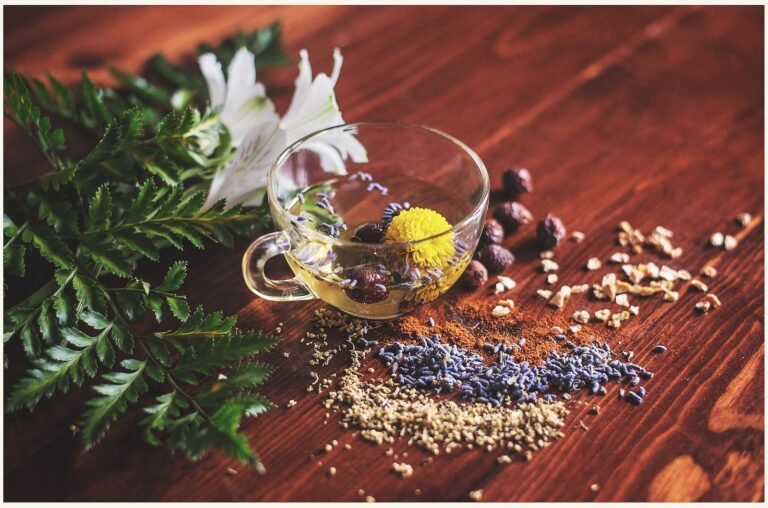Say Goodbye to Strep Throat with These Easy Home Remedies
Strep throat is a bacterial infection that affects the throat and tonsils. It is caused by the Streptococcus pyogenes bacteria, also known as group A streptococcus. This type of bacteria is highly contagious and can be spread through respiratory droplets when an infected person coughs or sneezes. Strep throat is most common in children between the ages of 5 and 15, but it can also affect adults. The symptoms of strep throat include a sore throat, difficulty swallowing, fever, swollen lymph nodes, and white patches on the tonsils. It is important to seek medical attention if you suspect that you or your child has strep throat, as it can lead to complications such as rheumatic fever or kidney inflammation if left untreated.
Strep throat is typically diagnosed through a throat swab test, which can determine if the infection is caused by the Streptococcus pyogenes bacteria. Once diagnosed, treatment usually involves a course of antibiotics to clear the infection. It is important to complete the full course of antibiotics as prescribed by a healthcare professional to ensure that the infection is fully eradicated. In addition to antibiotics, there are also home remedies, herbal remedies, dietary changes, hydration, and lifestyle changes that can help alleviate the symptoms of strep throat and support the body’s natural healing process.
Home Remedies for Strep Throat
There are several home remedies that can help alleviate the symptoms of strep throat and promote healing. Gargling with warm salt water can help soothe a sore throat and reduce inflammation. Mix a teaspoon of salt in a glass of warm water and gargle with the solution several times a day. Honey is another natural remedy that can help soothe a sore throat and suppress coughing. Add a teaspoon of honey to a cup of warm tea or water and drink it slowly to coat the throat and provide relief. Additionally, using a humidifier in the bedroom can help keep the air moist and prevent the throat from becoming dry and irritated during sleep.
Another effective home remedy for strep throat is to consume foods and beverages that are easy to swallow and gentle on the throat. This includes warm soups, broths, herbal teas, and smoothies. Avoiding spicy or acidic foods and beverages can also help prevent further irritation to the throat. Resting the voice by speaking less and avoiding yelling or whispering can also help reduce strain on the throat and promote healing. These home remedies can be used in conjunction with medical treatment to provide relief from strep throat symptoms.
Herbal Remedies for Strep Throat
In addition to home remedies, there are also herbal remedies that can help alleviate the symptoms of strep throat and support the body’s natural healing process. Echinacea is a popular herb that is known for its immune-boosting properties. It can be taken in supplement form or consumed as a tea to help strengthen the immune system and fight off the bacterial infection causing strep throat. Another herb that can be beneficial for strep throat is licorice root, which has anti-inflammatory and soothing properties that can help reduce throat pain and irritation.
Marshmallow root is another herbal remedy that can help soothe a sore throat and reduce inflammation. It contains mucilage, a gel-like substance that coats and protects the throat, providing relief from discomfort. Slippery elm is another herb that contains mucilage and can be used to make a soothing tea or lozenge for sore throat relief. These herbal remedies can be used in conjunction with medical treatment to provide additional support for the body’s natural healing process.
Dietary Changes for Strep Throat Relief
Making dietary changes can also help alleviate the symptoms of strep throat and support the body’s healing process. Consuming foods that are rich in vitamins and minerals can help boost the immune system and promote recovery. Foods high in vitamin C, such as citrus fruits, strawberries, bell peppers, and broccoli, can help strengthen the immune system and fight off the bacterial infection causing strep throat. Foods high in zinc, such as lean meats, nuts, seeds, and legumes, can also help support immune function and promote healing.
In addition to consuming immune-boosting foods, it is important to stay hydrated by drinking plenty of water and other fluids. This can help prevent dehydration and keep the throat moist, reducing discomfort and irritation. Avoiding foods and beverages that are spicy, acidic, or rough in texture can also help prevent further irritation to the throat. Making these dietary changes can help alleviate the symptoms of strep throat and support the body’s natural healing process.
Hydration and Strep Throat
Hydration is crucial for relieving the symptoms of strep throat and supporting the body’s natural healing process. Drinking plenty of water and other fluids can help prevent dehydration and keep the throat moist, reducing discomfort and irritation. Warm liquids such as herbal teas, broths, and soups can also help soothe a sore throat and provide relief from pain. Avoiding caffeinated beverages and alcohol is important, as these can dehydrate the body and worsen symptoms.
In addition to drinking fluids, using a humidifier in the bedroom can help keep the air moist and prevent the throat from becoming dry and irritated during sleep. This can help reduce discomfort and promote healing while resting. It is important to stay well-hydrated throughout the duration of strep throat to support the body’s natural healing process.
Lifestyle Changes for Strep Throat Prevention
Making lifestyle changes can help prevent the spread of strep throat and reduce the risk of infection. Practicing good hygiene, such as washing hands frequently with soap and water, covering the mouth when coughing or sneezing, and avoiding close contact with individuals who are sick, can help prevent the spread of bacteria that cause strep throat. It is also important to regularly clean and disinfect commonly-touched surfaces such as doorknobs, light switches, and electronic devices to prevent the spread of germs.
In addition to practicing good hygiene, it is important to take care of overall health by getting enough sleep, eating a balanced diet, exercising regularly, and managing stress. A strong immune system can help prevent infections such as strep throat from taking hold in the body. Making these lifestyle changes can help reduce the risk of strep throat and support overall health.
When to Seek Medical Attention for Strep Throat
While home remedies, herbal remedies, dietary changes, hydration, and lifestyle changes can help alleviate the symptoms of strep throat and support the body’s natural healing process, it is important to seek medical attention if symptoms persist or worsen. If you or your child has a sore throat accompanied by fever, difficulty swallowing, swollen lymph nodes, or white patches on the tonsils, it is important to see a healthcare professional for diagnosis and treatment.
Strep throat is typically treated with a course of antibiotics to clear the bacterial infection. It is important to complete the full course of antibiotics as prescribed by a healthcare professional to ensure that the infection is fully eradicated. In some cases, complications such as rheumatic fever or kidney inflammation can occur if strep throat is left untreated. If you or your child experiences severe or persistent symptoms such as difficulty breathing, severe pain, or dehydration, seek medical attention immediately.
In conclusion, strep throat is a bacterial infection that affects the throat and tonsils and is caused by group A streptococcus bacteria. It is important to seek medical attention if you suspect that you or your child has strep throat to receive proper diagnosis and treatment. In addition to medical treatment with antibiotics, home remedies, herbal remedies, dietary changes, hydration, and lifestyle changes can help alleviate symptoms and support the body’s natural healing process. By taking a holistic approach to managing strep throat, you can promote recovery and prevent complications while supporting overall health and well-being.







